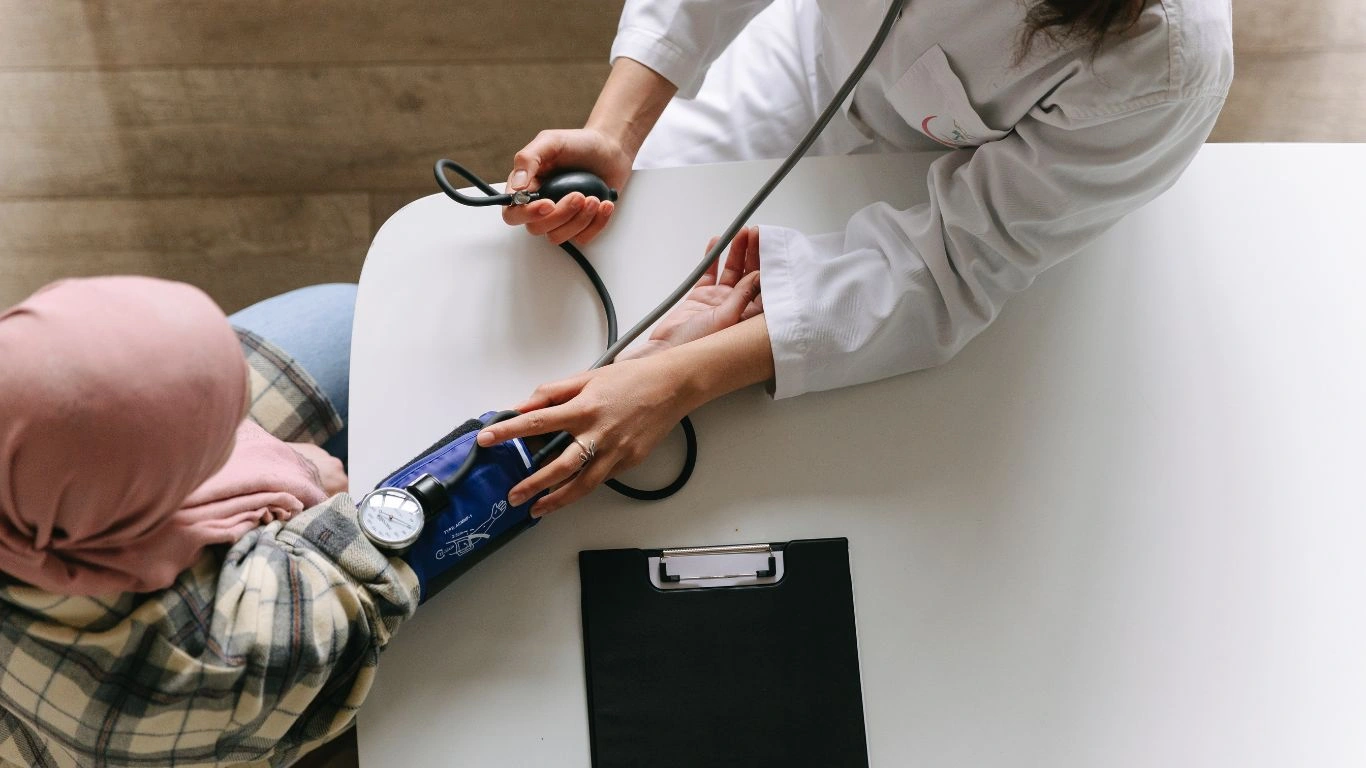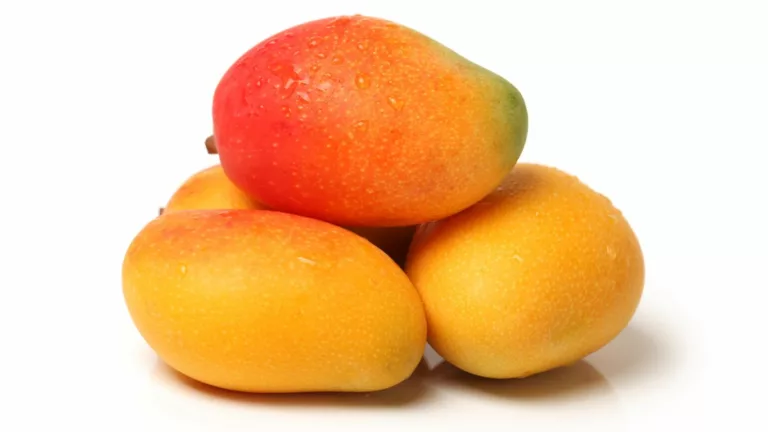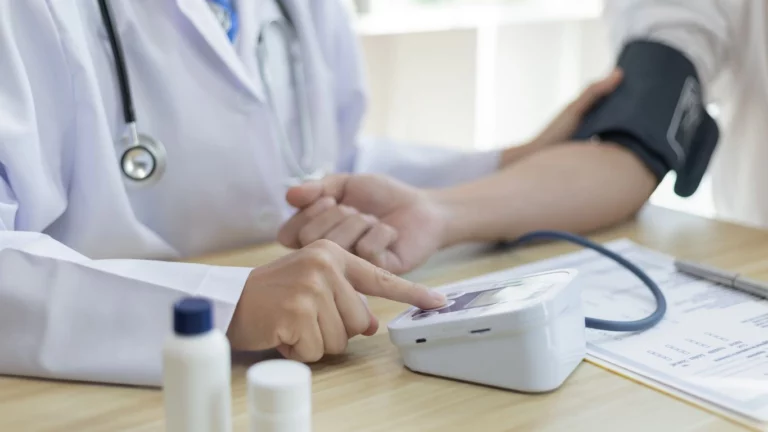“How High Blood Pressure and Electrolyte Imbalance Affect Your Health”
As an internal medicine physician specializing in hypertension management, I often encounter patients who don’t realize just how closely high blood pressure and electrolyte imbalance are connected. It’s not uncommon to see individuals with high blood pressure also experiencing issues with their electrolytes, and this relationship can sometimes make managing hypertension even more complex. In my years of practice, I’ve seen how these two factors can work together to create health challenges that go beyond the usual understanding of high blood pressure alone.
What Exactly Are Electrolytes and How Do They Affect Your Body?
Let’s start with the basics. Electrolytes are minerals in your body that carry an electric charge. These include sodium, potassium, calcium, and magnesium, among others. They are crucial for maintaining various bodily functions, such as regulating your heartbeat, balancing your fluids, and helping your muscles contract. The balance of electrolytes is essential for your health, and any disruption can lead to significant health problems.
When you have high blood pressure (also known as hypertension), your cardiovascular system is under stress. But what does that have to do with electrolytes? Well, imbalances in your electrolytes can either worsen your blood pressure or make it harder to control. This is because electrolytes help manage fluid levels in your body, and fluid volume is a key player in blood pressure regulation. A small fluctuation in your electrolyte levels can have a ripple effect, influencing how well your blood vessels respond to pressure and affecting the efficiency of your heart.
How High Blood Pressure Can Lead to Electrolyte Imbalance
Now that we understand the importance of electrolytes, let’s dive into how high blood pressure can lead to imbalances. First off, some of the medications used to manage hypertension, such as diuretics, can inadvertently cause an electrolyte imbalance. Diuretics, often referred to as “water pills,” work by helping your kidneys eliminate excess sodium and water from the body. While they’re great for lowering blood pressure, they can also cause you to lose important electrolytes like potassium, magnesium, and calcium. Over time, this loss can lead to an electrolyte imbalance, which can further affect your blood pressure.
But it’s not just the medications that can be to blame. High blood pressure itself can alter the way your body regulates fluid and sodium. With persistent hypertension, your kidneys can become less effective at excreting sodium, causing it to build up in the bloodstream. This excess sodium can then attract more water, which increases the volume of fluid in your blood vessels, contributing to even higher blood pressure.
The Role of Sodium in High Blood Pressure and Electrolyte Imbalance
Sodium is one of the key electrolytes involved in this intricate balancing act. It helps regulate blood pressure by controlling the volume of blood and the amount of fluid in your blood vessels. When sodium levels are too high, your body retains more fluid, which leads to an increase in blood volume and ultimately higher blood pressure. This creates a vicious cycle where high blood pressure exacerbates sodium retention, and the excess sodium worsens the blood pressure.
For individuals with hypertension, it’s essential to monitor not just your sodium intake but also how your body handles sodium. This is where electrolyte balance becomes particularly important. If your potassium levels are low, for example, it can make it harder for your kidneys to excrete sodium, further contributing to elevated blood pressure.

The Connection Between Potassium and Blood Pressure
Potassium is another electrolyte that plays a vital role in managing your blood pressure. Unlike sodium, potassium helps your body balance fluid levels by promoting the excretion of sodium through the urine. Essentially, potassium works in opposition to sodium to help regulate blood pressure. If you don’t have enough potassium, your body may not be able to flush out excess sodium effectively, contributing to high blood pressure.
For most people with hypertension, potassium intake can be one of the most important dietary adjustments. Increasing potassium-rich foods—like bananas, spinach, sweet potatoes, and beans—can help to balance sodium levels and lower blood pressure. This is especially crucial for those taking diuretics, which can increase potassium loss. A proper balance of potassium, sodium, and other electrolytes is essential for keeping blood pressure under control and supporting heart health.
Magnesium: A Key Player in Cardiovascular Health
Magnesium is another electrolyte that deserves attention when talking about high blood pressure. Magnesium helps regulate blood vessel function and has a natural ability to help blood vessels relax. This can lead to a decrease in blood pressure, making it a vital nutrient for people with hypertension.
Interestingly, many individuals with high blood pressure also tend to have low magnesium levels. This creates a double whammy: hypertension increases the risk of magnesium deficiency, and a lack of magnesium can worsen hypertension. Foods rich in magnesium—such as nuts, seeds, leafy greens, and whole grains—can help restore balance and improve blood pressure regulation. Some studies even suggest that magnesium supplementation could be a helpful adjunct in managing hypertension, especially for individuals with a deficiency.

How to Prevent or Correct Electrolyte Imbalance in Hypertension
As you can see, managing high blood pressure isn’t just about taking medication. It’s about maintaining a healthy balance of electrolytes in your body. Here are a few ways you can help prevent or correct electrolyte imbalances while managing hypertension:
- Increase your potassium intake by adding more potassium-rich foods to your diet, such as bananas, spinach, potatoes, and tomatoes. Potassium can help balance sodium levels and lower blood pressure.
- Watch your sodium intake. A high-sodium diet can exacerbate high blood pressure. Try to limit processed foods and avoid adding excessive salt to your meals.
- Stay hydrated by drinking plenty of water throughout the day. Proper hydration helps your kidneys function more effectively, which can prevent fluid buildup and improve electrolyte balance.
- Talk to your doctor about your medications. If you’re on diuretics or other blood pressure medications, ask your doctor about how they may affect your electrolytes and whether supplements or dietary adjustments are necessary.

Remember, managing high blood pressure is a lifelong journey. It’s important to consider how both your blood pressure and your electrolytes are functioning together. When you get this balance right, you’re not just managing high blood pressure—you’re supporting your entire cardiovascular system for long-term health.
The Impact of Chronic Kidney Disease on Electrolyte Balance and Blood Pressure
As we dive deeper into the relationship between high blood pressure and electrolyte imbalance, it’s important to highlight a crucial factor—chronic kidney disease (CKD). In my practice, I’ve seen how high blood pressure and kidney disease are often linked in a cyclical manner. When blood pressure is not well-controlled, it can cause damage to the kidneys over time, leading to a condition known as chronic kidney disease. On the flip side, kidney disease can also worsen high blood pressure, creating a complex situation that’s difficult to manage.
Here’s how it works: your kidneys play a huge role in regulating electrolyte balance, particularly sodium and potassium. They do this by filtering your blood and excreting excess waste and fluids. When you have high blood pressure, the blood vessels in the kidneys can become damaged, reducing their ability to filter electrolytes and waste products properly. This disruption can lead to fluid retention and an imbalance of electrolytes, which further increases blood pressure.
What’s more, CKD can make it harder for your body to get rid of excess potassium, which can lead to dangerous levels of potassium in the bloodstream (a condition called hyperkalemia). In my experience, managing high blood pressure in patients with CKD requires a very delicate balance of medication, diet, and careful monitoring of electrolytes.
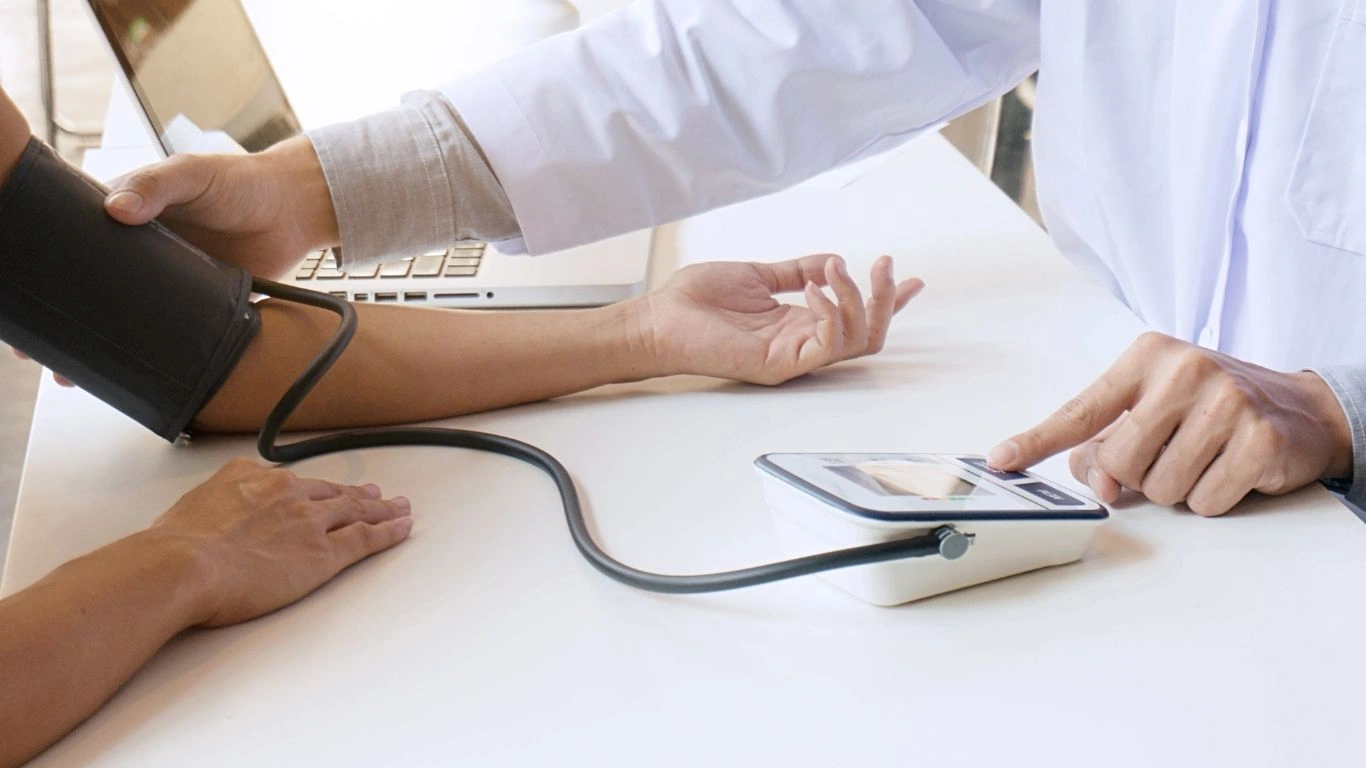
The Link Between Stress, Blood Pressure, and Electrolyte Imbalance
Another factor that plays a role in both hypertension and electrolyte balance is stress. We all know that stress can raise your blood pressure. It’s one of those things that seems almost inevitable—whether it’s work pressures, personal challenges, or even just a busy day, stress can make your blood pressure shoot up in no time. But what about its effects on your electrolytes?
Well, stress can also affect your electrolytes in a few different ways. One of the most common effects I see is an increase in cortisol levels. Cortisol, also known as the stress hormone, plays a big role in fluid balance and sodium retention. When your body is under stress, cortisol signals your kidneys to retain sodium, which can lead to an increase in blood volume and, consequently, blood pressure.
Additionally, stress can lead to dehydration. When you’re stressed, you may not drink enough water, or you may engage in behaviors that deplete your electrolytes, such as consuming excessive caffeine or alcohol. Dehydration is a key factor that can contribute to electrolyte imbalances. In my experience, patients often don’t realize that their high blood pressure may be compounded by stress-induced dehydration or poor hydration habits.
How to Manage Stress for Better Blood Pressure and Electrolyte Balance
Managing stress is essential for both controlling blood pressure and maintaining electrolyte balance. Some practical strategies I recommend include:
- Mindfulness and relaxation techniques: Practices like meditation, yoga, or deep breathing exercises can help lower cortisol levels and relax the body, which in turn can help manage both blood pressure and electrolyte levels.
- Regular physical activity: Exercise is a natural stress-buster. It helps to reduce cortisol levels, improve circulation, and even promote healthy kidney function, which is crucial for electrolyte regulation.
- Getting enough sleep: Sleep is often overlooked when it comes to stress management. However, poor sleep can exacerbate both high blood pressure and electrolyte imbalances. Aim for 7-8 hours of restful sleep each night to support your overall health.
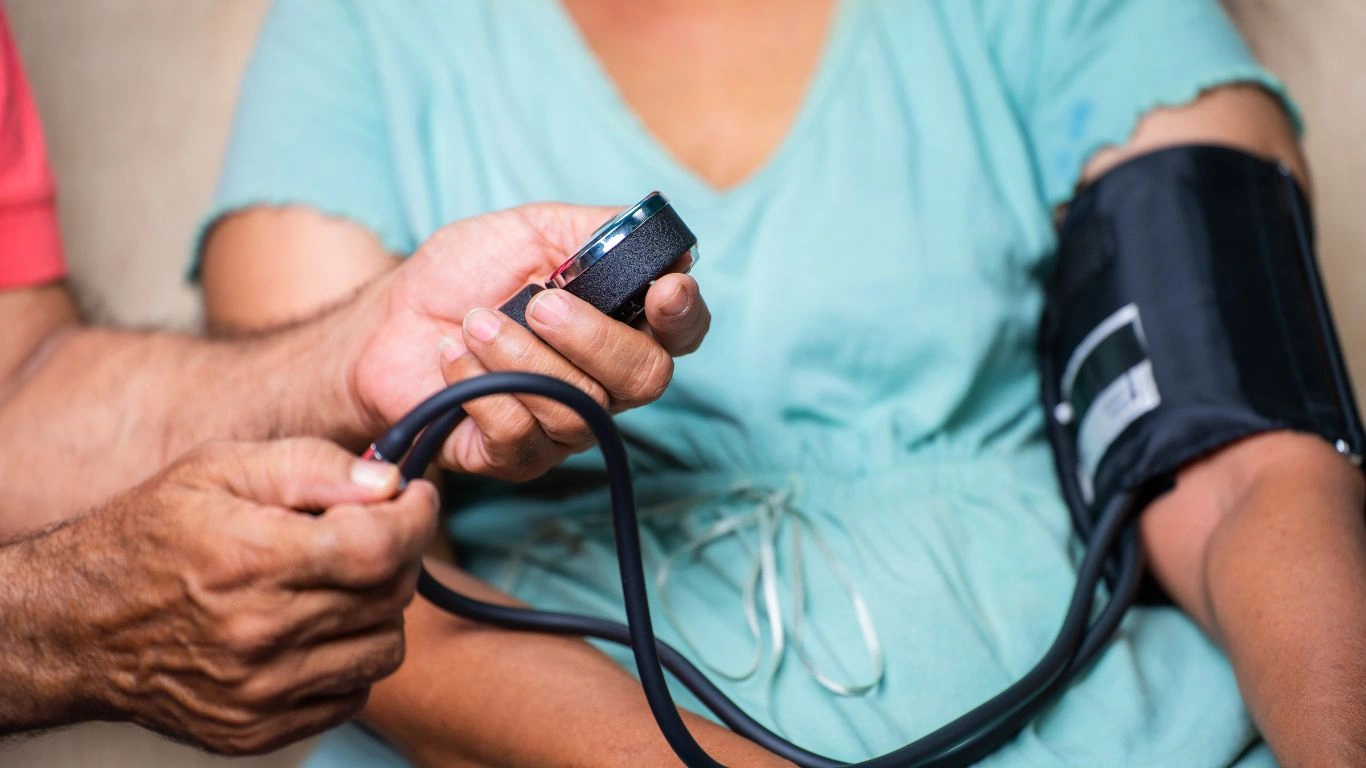
Dietary Strategies for Maintaining Electrolyte Balance and Lowering Blood Pressure
Diet plays an enormous role in managing both blood pressure and electrolyte balance. A poor diet high in processed foods and low in nutrient-dense foods can set the stage for both high blood pressure and electrolyte imbalances. Over the years, I’ve seen the positive effects that a proper diet can have on my patients’ blood pressure and overall health. In fact, making simple dietary changes can have a profound impact.
1. The DASH Diet: A Game Changer for High Blood Pressure
One of the most effective diets I recommend for patients with high blood pressure is the Dietary Approaches to Stop Hypertension (DASH) diet. The DASH diet is specifically designed to lower blood pressure by focusing on foods that are rich in potassium, magnesium, and calcium—key electrolytes that help regulate blood pressure.
The DASH diet emphasizes:
- Fruits and vegetables: Rich in potassium, magnesium, and fiber, these foods help support overall health and blood pressure control.
- Whole grains: Whole grains like oats, brown rice, and quinoa are great sources of magnesium and fiber.
- Low-fat dairy: Dairy products like milk and yogurt are rich in calcium, which helps regulate blood pressure.
- Lean proteins: Fish, poultry, and beans provide protein without excess saturated fat.
Following the DASH diet not only supports your electrolyte balance but also promotes heart health by reducing sodium intake and increasing the consumption of blood pressure-friendly nutrients.
2. Reduce Sodium, Increase Potassium
As we’ve discussed, sodium is a key player in both blood pressure and electrolyte balance. High sodium intake is one of the primary contributors to elevated blood pressure, so it’s important to minimize your intake. This doesn’t just mean avoiding the salt shaker—processed foods like canned soups, fast food, and pre-packaged snacks are often packed with hidden sodium.
To combat this, aim to increase your potassium intake by incorporating more potassium-rich foods into your meals. Foods like bananas, sweet potatoes, tomatoes, and spinach are excellent sources of potassium and can help balance out the effects of sodium on your blood pressure.

Electrolyte Supplements: When Are They Necessary?
In some cases, despite dietary changes, patients may still struggle with electrolyte imbalances, especially if they are on medications like diuretics or have underlying health conditions like kidney disease. In these situations, electrolyte supplements might be recommended.
It’s important to note that not everyone needs supplements. In fact, most people can maintain a healthy balance of electrolytes through food. However, for those who are deficient or struggling with an imbalance, supplements can be a helpful tool. Some common supplements include potassium chloride, magnesium citrate, and calcium supplements, but it’s crucial to take these under the supervision of a healthcare provider.
For example, I’ve had patients with hypertension who also experience low potassium levels due to their blood pressure medications. In these cases, I often recommend potassium supplements, but I always emphasize the importance of monitoring potassium levels closely. Too much potassium can also be harmful, so finding the right balance is key.
Understanding the Role of Hydration in Electrolyte Balance and Hypertension
As we continue our exploration of high blood pressure and electrolyte imbalance, there’s one crucial factor we can’t overlook: hydration. In my years of managing hypertension, I’ve come to realize just how often patients overlook the importance of staying hydrated. Dehydration can have a significant impact on both blood pressure and electrolyte levels, making it an essential piece of the puzzle when it comes to controlling hypertension.
When you’re dehydrated, your blood volume decreases. This can trigger your body to release hormones that constrict your blood vessels, which ultimately raises your blood pressure. At the same time, dehydration can disturb your electrolyte balance. For instance, inadequate hydration can lead to low levels of sodium, potassium, and magnesium. When this happens, your body may struggle to maintain normal blood pressure levels.
How to Stay Hydrated and Support Healthy Electrolyte Levels
It’s pretty simple to stay hydrated, but many people still don’t drink enough water, or they may rely on beverages like coffee or soda that can actually dehydrate you. To help manage blood pressure and maintain electrolyte balance, consider the following:
- Drink plenty of water: Aim for at least 8 cups (64 oz) of water per day. If you’re active or live in a hot climate, you may need more.
- Eat water-rich foods: Fruits like watermelon, cucumbers, and oranges have a high water content and can help keep you hydrated.
- Electrolyte drinks: In some cases, electrolyte drinks can be helpful, especially if you’re losing fluids through exercise or illness. But be mindful of the sugar content in some commercial drinks.
- Avoid excessive caffeine and alcohol: Both of these can have a dehydrating effect, so it’s important to balance them out with plenty of water.

How Monitoring Your Blood Pressure Regularly Can Help Prevent Electrolyte Imbalances
As someone who has worked in hypertension management for years, I can’t stress enough how important it is to monitor your blood pressure regularly. High blood pressure doesn’t always come with noticeable symptoms, which is why it’s often called the “silent killer.” Keeping an eye on your blood pressure can help you and your healthcare provider make timely adjustments to your treatment plan before things get worse.
Regular blood pressure monitoring can also alert you to fluctuations that might be related to electrolyte imbalances. For example, if you notice that your blood pressure spikes or drops significantly after taking certain medications or making dietary changes, it might be a sign that your electrolytes are out of balance.
Blood Pressure Monitoring Tips
Here are a few tips for effectively monitoring your blood pressure at home:
- Use a reliable blood pressure monitor: There are many at-home monitors available, but make sure to choose one that’s validated for accuracy. Ask your healthcare provider for recommendations.
- Check your blood pressure at the same time each day: Consistency is key. Aim to measure your blood pressure in the morning before you’ve eaten or taken any medication.
- Record your readings: Keep track of your blood pressure readings over time, and share them with your doctor. This will help them understand how well your treatment plan is working.
The Importance of Working with a Healthcare Provider
While there are plenty of lifestyle changes and home remedies you can implement to manage high blood pressure and electrolyte imbalances, it’s crucial to work closely with a healthcare provider. Hypertension is a complex condition that requires a personalized approach, and every individual’s needs are different. I always emphasize to my patients the importance of regular check-ups and open communication with their healthcare team.
Your doctor can help you determine the best treatment plan, whether it involves lifestyle changes, medication, or both. They can also monitor your electrolyte levels through blood tests and adjust your medications accordingly. For instance, if you’re taking diuretics or other blood pressure medications, your doctor will want to ensure your electrolyte levels are balanced to avoid complications.

References
If you want to learn more about managing hypertension and electrolyte balance, I recommend checking out the following resources:
Disclaimer
The information provided in this article is intended for informational purposes only and should not be considered as medical advice. Please consult with a healthcare provider before making any changes to your diet, lifestyle, or medication regimen. Individual health needs may vary, and a personalized approach to hypertension management is always recommended. The author does not assume any liability for the accuracy or completeness of the information provided.

Dr. Gwenna Aazee is a board-certified Internal Medicine Physician with a special focus on hypertension management, chronic disease prevention, and patient education. With years of experience in both clinical practice and medical writing, she’s passionate about turning evidence-based medicine into accessible, actionable advice. Through her work at Healthusias.com, Dr. Aazee empowers readers to take charge of their health with confidence and clarity. Off the clock, she enjoys deep dives into nutrition research, long walks with her rescue pup, and simplifying medical jargon one article at a time.

